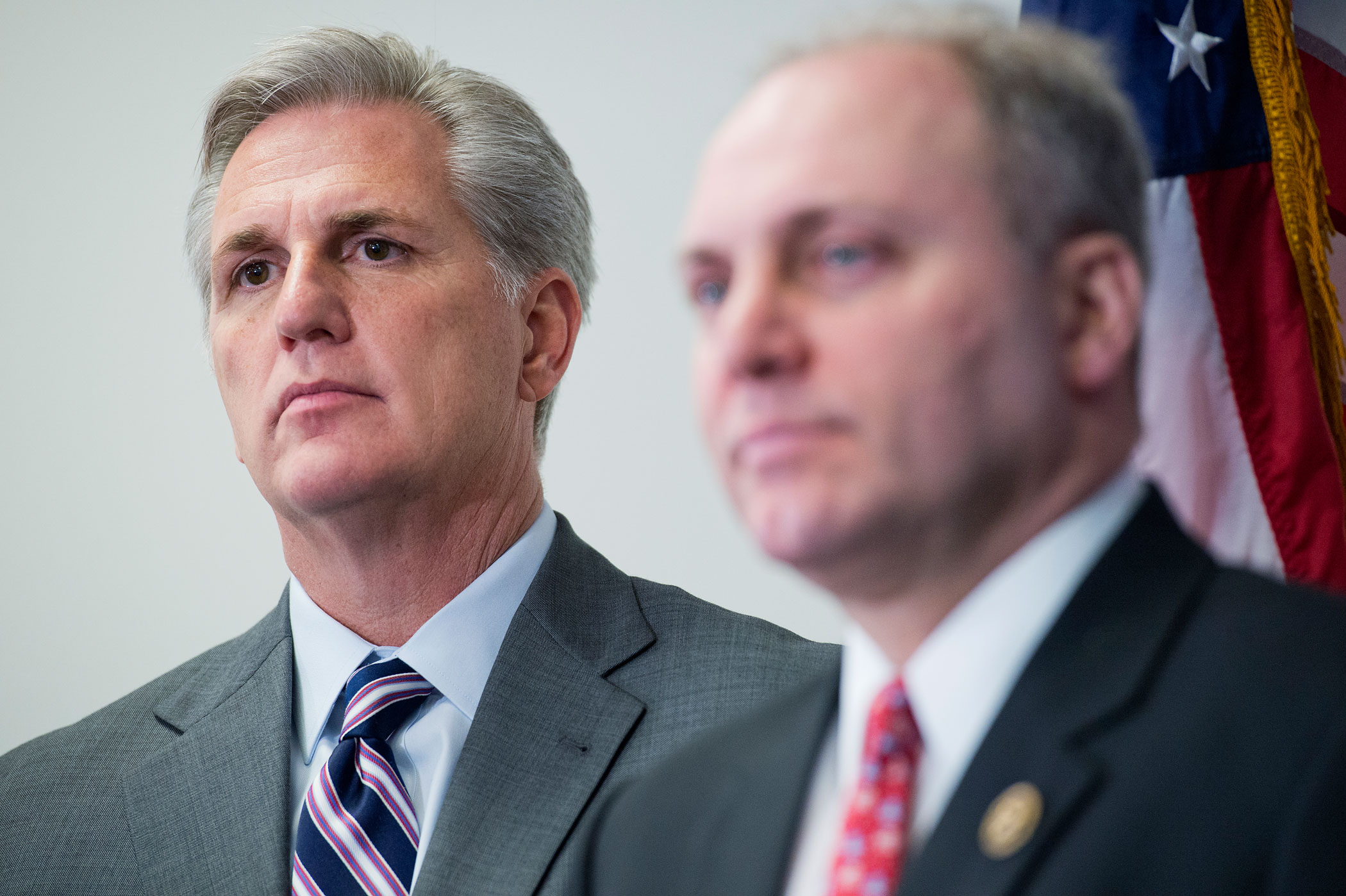
Several bills passed the House of Representatives this week to combat human trafficking worldwide. Between Monday and Tuesday, a total of 12 bipartisan bills attacking the issue from all angles—from the demand for sex trafficking to the welfare system’s response to victims—passed the Republican-controlled House.
Many of the bills that passed Tuesday had passed the House during the 113th Congress, but didn’t get voted on in the Senate. Republicans are hopeful that will change this time around.
“Though last year many of these same bills got stuck in the Senate, for the sake of all those affected by human trafficking, I’m hopeful that these bills will be passed through the Senate, sent to the President’s desk, and finally become law,” said House Majority Leader Kevin McCarthy.
A total of 13 bills focused on trafficking passed the House last session and one, the Preventing Sex Trafficking and Strengthening Families Act, was signed into law last September. The bills were lauded by lawmakers from both sides of the aisle as important steps toward ending the practice, seen across the globe as a modern form of slavery.
Bills on the issue of human trafficking have also been introduced in the Senate, including a bill from Sens. Rob Portman (R-Ohio) and Dianne Feinstein (D-Calif.) called the Combat Human Trafficking Act, aimed at those who engage in sex acts with victims of trafficking. The bill, introduced Jan. 8, would also ramp up law enforcement efforts to investigate and prosecute buyers and increase victim services. In a statement to TIME, Sen. Portman called human trafficking the “human rights cause of our time.”
“I am hopeful that legislation to strengthen law enforcement efforts to investigate and prosecute all who commit sex trafficking crimes will soon become law,”said Portman.
On Tuesday, Sen. John Cornyn (R-Texas) spoke on the Senate floor urging action on a bill he and several Senators introduced in January called the Justice for Victims of Trafficking Act of 2015. “Yes, human trafficking is happening right in our own backyard, and more than 80% of sex trafficking victims in America are U.S. citizens,” Cornyn said, noting that big sporting events like the Super Bowl can be hotbeds for sex trafficking.
Human trafficking is estimated to be a multinational, multibillion-dollar industry and one of the most lucrative international criminal practices. The Department of Homeland Security estimates over 20 million men, women, and children are victims of trafficking. An estimated 100,000 to 300,000 American children are at risk of becoming child sex trafficking victims every year, according to the National Center for Missing and Exploited Children.
The bills before Congress address what’s arguably the most maligned form of trafficking—child sex trafficking— and they go pretty far, too. One bill, the Stop Exploitation Through Trafficking Act, calls on states to provide welfare services including counseling to keep child victims from having to enter the criminal justice system. Another bill, International Megan’s Law, would require the U.S. to communicate about when and where convicted child sex offenders are traveling internationally. One bill would make it a crime to “knowingly” sell advertising that offers certain commercial sex acts, in an effort to stop websites like backpage.com.
Though the issue of child sex trafficking is well addressed in the bills, little attention is given to international and domestic labor trafficking, of which there are an estimated 14.2 million victims worldwide. The oversight hasn’t gone unnoticed by leading anti-trafficking group Polaris , which operates the National Human Trafficking Resource Center.
“Overall the introduction of these bills is a step in the right direction,” Brandon Bouchard, a spokesperson for Polaris tells TIME. “We just wish Congress would include labor trafficking in their efforts to combat trafficking worldwide.”
The group is also worried that some of the new initiatives proposed under the legislation will impose on already cash-strapped programs.
“Funding for survivor services is already severely limited. Adding new programs and initiatives that draw funding from these minimal allocations is counterintuitive,” said Polaris director of national programs Keeli Sorensen in a statement.
The bills came at the start of a busy week on the issue of trafficking. Human rights organization Human Rights First will host a working group meeting in Washington, bringing together government and non-profit leaders from across the nation to discuss how to best address the issue.
More Must-Reads from TIME
- Cybersecurity Experts Are Sounding the Alarm on DOGE
- Meet the 2025 Women of the Year
- The Harsh Truth About Disability Inclusion
- Why Do More Young Adults Have Cancer?
- Colman Domingo Leads With Radical Love
- How to Get Better at Doing Things Alone
- Michelle Zauner Stares Down the Darkness
Contact us at letters@time.com